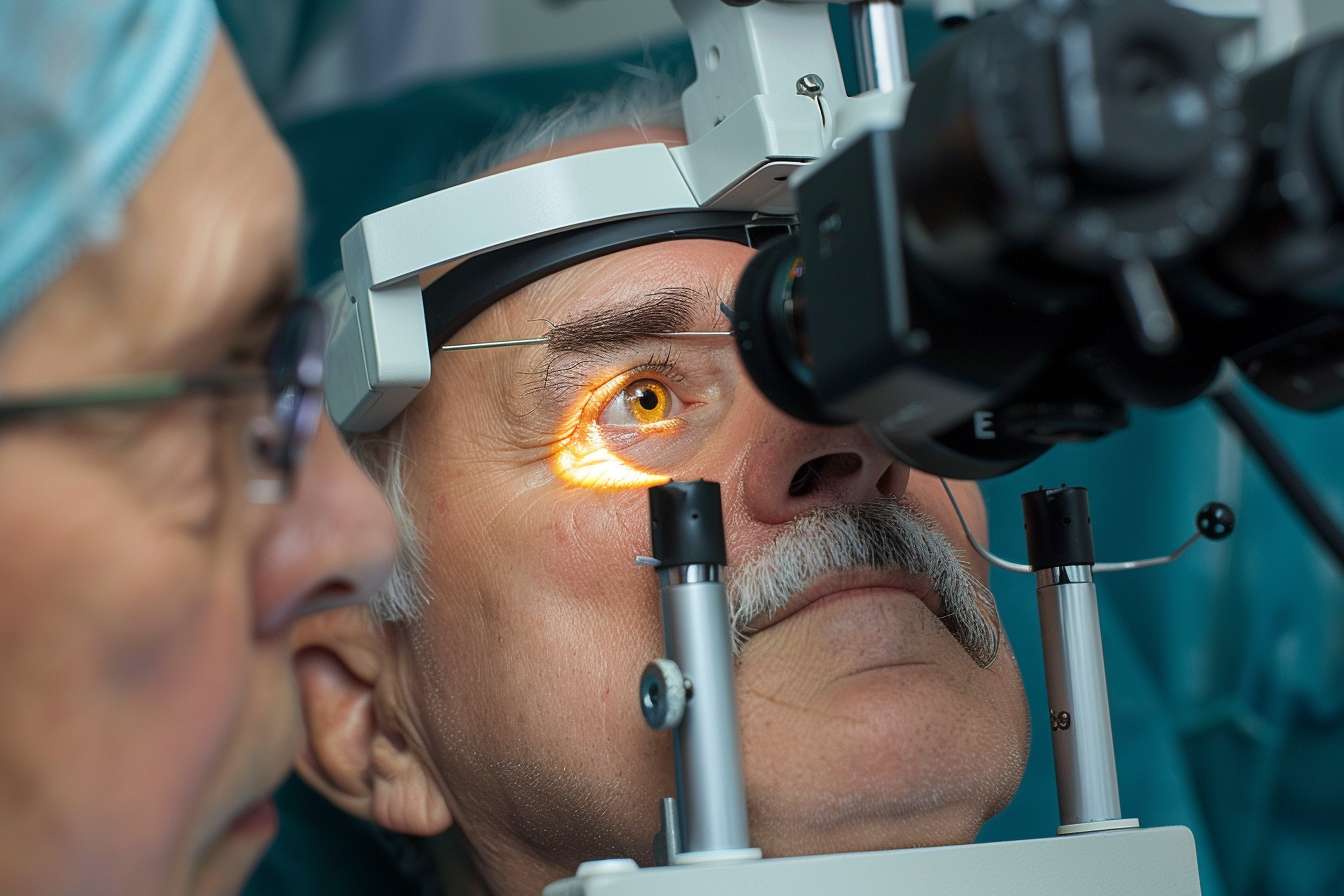Cataract Surgery: Understanding the Procedure and Its Benefits
Cataracts are a common eye condition that affects millions of people worldwide, particularly as they age. This clouding of the eye's natural lens can significantly impact vision, making daily activities challenging. Fortunately, cataract surgery has become a highly effective and routine procedure to restore clear vision. In this article, we'll explore what cataract surgery entails, its benefits, and what patients can expect throughout the process.

-
Blurred or hazy vision
-
Increased sensitivity to glare, especially at night
-
Faded or yellowed color perception
-
Difficulty reading or performing detailed tasks
-
The need for frequent changes in eyeglass prescriptions
Cataracts typically develop slowly over time, and their progression can significantly impact a person’s quality of life if left untreated.
How is cataract surgery performed?
Cataract surgery is a relatively quick and painless outpatient procedure that typically takes less than an hour to complete. The surgery is usually performed under local anesthesia, meaning the patient remains awake but feels no pain. Here’s a general overview of the procedure:
-
The surgeon makes a tiny incision in the eye’s cornea.
-
Using ultrasound technology (phacoemulsification), the cloudy lens is broken up and removed.
-
An artificial intraocular lens (IOL) is inserted to replace the natural lens.
-
The incision is typically self-sealing and doesn’t require stitches.
Modern cataract surgery techniques have made the procedure highly effective and safe, with a quick recovery time for most patients.
What are the benefits of undergoing cataract surgery?
Cataract surgery offers numerous benefits that can significantly improve a patient’s quality of life:
-
Improved vision clarity and sharpness
-
Enhanced color perception
-
Reduced glare sensitivity, especially while driving at night
-
Increased independence in daily activities
-
Potential reduction in the need for glasses or contact lenses
-
Improved overall quality of life and mental well-being
Many patients report feeling a renewed sense of confidence and enjoyment in their daily activities after successful cataract surgery.
What can patients expect during the recovery process?
Recovery from cataract surgery is typically quick and straightforward for most patients. Here’s what to expect:
-
Immediate post-surgery: Vision may be blurry at first, but it should improve within a few days.
-
First 24-48 hours: Avoid strenuous activities and protect the eye with a shield while sleeping.
-
First week: Use prescribed eye drops to prevent infection and inflammation.
-
Follow-up appointments: Attend all scheduled check-ups with the eye surgeon.
-
Full recovery: Most patients experience significant vision improvement within a few weeks.
It’s important to follow all post-operative instructions provided by the surgeon to ensure a smooth recovery and optimal results.
Where can patients undergo cataract surgery?
Cataract surgery is typically performed in specialized eye clinics or hospitals with dedicated ophthalmology departments. When choosing a location for cataract surgery, consider the following factors:
-
Reputation and experience of the surgeon and facility
-
Advanced technology and equipment available
-
Comprehensive pre- and post-operative care
-
Patient reviews and testimonials
-
Insurance coverage and financial considerations
| Provider Type | Typical Services | Key Features |
|---|---|---|
| Eye Clinic | Comprehensive eye exams, cataract surgery, LASIK | Specialized equipment, experienced surgeons |
| Hospital Ophthalmology Department | Cataract surgery, treatment for complex eye conditions | Access to broader medical resources |
| Ambulatory Surgery Center | Outpatient cataract surgery | Efficient, focused care for routine procedures |
Prices, rates, or cost estimates mentioned in this article are based on the latest available information but may change over time. Independent research is advised before making financial decisions.
How can patients prepare for cataract surgery?
Proper preparation can help ensure a successful cataract surgery experience:
-
Undergo a comprehensive eye exam to determine candidacy for surgery.
-
Discuss any medications or health conditions with the surgeon.
-
Arrange for transportation to and from the surgery center.
-
Follow pre-operative instructions, such as fasting or using specific eye drops.
-
Prepare the home environment for a comfortable recovery period.
By taking these steps, patients can help minimize risks and optimize their surgical outcomes.
In conclusion, cataract surgery has become a safe and effective solution for those struggling with vision impairment due to cataracts. With advanced surgical techniques, quick recovery times, and significant improvements in vision quality, this procedure offers hope and renewed independence for millions of people worldwide. If you’re experiencing symptoms of cataracts, consult with an eye care professional to determine if cataract surgery might be the right choice for you.
This article is for informational purposes only and should not be considered medical advice. Please consult a qualified healthcare professional for personalized guidance and treatment.






